| All Artists: Frank Sinatra, Duke Ellington Title: Francis a & Edward K Members Wishing: 1 Total Copies: 0 Label: Warner Bros / Wea Release Date: 10/25/1990 Genres: Jazz, Pop, Broadway & Vocalists Styles: Swing Jazz, Traditional Jazz & Ragtime, Vocal Jazz, Easy Listening, Oldies, Vocal Pop, Classic Vocalists, Traditional Vocal Pop Number of Discs: 1 SwapaCD Credits: 1 UPC: 075992704526 |
Search - Frank Sinatra, Duke Ellington :: Francis a & Edward K
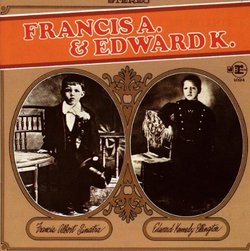 | Frank Sinatra, Duke Ellington Francis a & Edward K Genres: Jazz, Pop, Broadway & Vocalists
Recorded on Sinatra's birthday in 1967, this collaboration between America's most popular singing icon and preeminent jazz composer still endures as one of Sinatra's most enjoyable Reprise-era albums. The Ellington Orchest... more » |
Larger Image |
CD DetailsSynopsis
Amazon.com essential recording Recorded on Sinatra's birthday in 1967, this collaboration between America's most popular singing icon and preeminent jazz composer still endures as one of Sinatra's most enjoyable Reprise-era albums. The Ellington Orchestra stretches out in style, with the five-man horn section (including trumpeter Cootie Williams and saxophonist Johnny Hodges) expertly counterpointing the Chairman's assured vocalizations on "All I Need Is the Girl," "Follow Me" and Ellington's "I Like the Sunrise." Bobby Hebb's "Sunny" works surprisingly well (Sinatra sounds as if he's singing it to Frank Jr.), and "Indian Summer" is heart-stoppingly lovely. Francis A. & Edward K. offers ample proof that, provided with properly challenging material, Sinatra could still astound and amaze. Sadly, the record sold poorly, presaging a move towards poppier pastures. --Dan Epstein Similar CDs
Similarly Requested CDs
|
CD Reviews"What?--No Satin Doll?" franksoprano | 02/10/2002 (3 out of 5 stars) "The Sinatra-Ellington album (coyly entitled "Francis A & Edward K," which might actually have hurt sales) was puzzling for two reasons: it contains only 8 songs and there's only one Ellington tune contained--the hymnal "I Like The Sunrise."The album would have seemed a perfect opportunity for Sinatra to explore some Ellington classics which he had never recorded--"Sophisticated Lady" "Satin Doll" and "Solitude" come immediately to mind..Sinatra echews these and other titles in favor, for example, of Bobby Hebb's innocuous 60's hit "Sunny". I know that Sinatra was never a fan of the songbook concept, as Ella was, for example, but in this case he was working with the composer. Word has it there were problems at the sessions...The Ellington band did not rehearse the charts ahead of time and the musicians could not sight read (as Basie's sidemen could)so arranger Billy May had to call in a few ringers to get the sessions completed--pianist Jimmy Jones actually fills in for the Duke a few times."Francis A & Edward K" has its moments, though-- Johnny Hodges' brilliant solo on "Indian Summer" and Sinatra's incredible performance of "Poor Butterly" which finds him singing the song in full three times and doing it differently each time out.The most dissapointing thing about "Francis A and Edward K" is thinking about what it might have been." Elegant and Timeless gary w jensen | Falls Church, Virginia United States | 03/02/2002 (5 out of 5 stars) "One of Sinatra's very best efforts. As great as some of the Capital swingers are, they are clearly dated to the time period in which they were recorded, whereas this album has a timeless quality. This is also true of his collaborations with Count Basie and Antonio Carlos Jobim, but as fine as those recordings are, they aren't as elegant sounding as this record. The recordings are tasteful and restrained throughout, except for the overly frentic "Come back to me" that closes the record. The opening cut "Follow me", is majestic. "Sunny" is given a blues treatment, complete with a "growl" trumpet, and the arrangement elevates an otherwise mediocre composition to grandeur. "Indian Summer" is one of the most beautiful songs Sinatra ever recorded. The elegant simplicity of "I like the sunrise" is timeless. "Yellow days" and "Poor buterfly" are perfectly executed. Sinatra was in fine voice and the orchestra, though restrained, played with sensitiviy and good taste - especially the soloists. There are only eight cuts, but the band stretches out, and the solos are stunning and fully realized, instead of the little snippets on the 2 to 3 minute cuts on his other albums that leave you begging for more. Only "Come back to me" misfires - The arrangement is too fast and doesn't fit in with the album's sound, although the lyrics are fantastic. It's too bad this album so underrated and overlooked, because, frankly, it puts his other, more popular swingers like "Come Swing With Me", "Sinatra and Swinging Brass", and "Sinatra Swings", to shame." Might as well have been a session band Michael R. Lachance | Maine, USA | 07/27/2000 (3 out of 5 stars) "Sinatra fans will love it, Ellington fans will be disappointed. Obviously Sinatra took all the reigns on these studio dates. Duke Ellington was not an artist to be "used" for boring support work. Its a shame that Duke was not given control of the arrangements, but then again, it WAS Sinatra and there were certain concessions to make due to this. Overall this recording is a very tastefull Sinatra release and a very plastic, hollow, generic (and boring) show for the Ellington crew as a whole. Nonetheless get the CD for its great vocal work and historical significance. I would recommend 'Ella at Duke's Place' for a far superior (and swinging) collaboration of Duke Ellington and band with an equally legendary artist, Ella Fitzgerald."
|

 Track Listings (8) - Disc #1
Track Listings (8) - Disc #1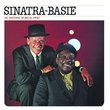
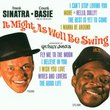

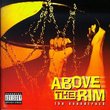
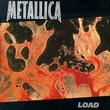
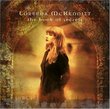
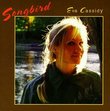
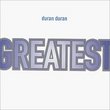
![Beach House On The Moon [Enhanced CD]](https://nationalbookswap.com/cd//m/93/7493/417493.jpg)
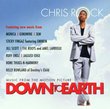
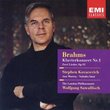
![Antonio Vivaldi: The Four Seasons [Complete]](https://nationalbookswap.com/cd//m/69/8769/6018769.jpg)